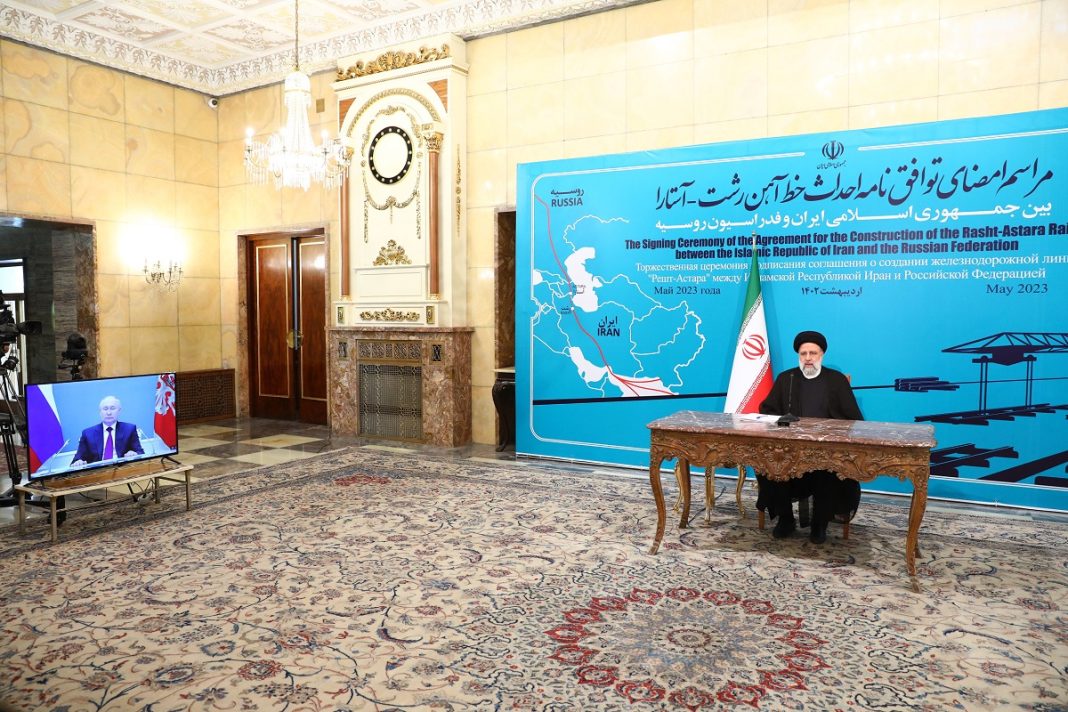During the signing ceremony, which took place via video-link in Tehran and Moscow on Wednesday, the two presidents hailed the agreement and said it would benefit the transit of goods in the region.
President Raisi said the agreement was “an important and strategic step” in cooperation between the Islamic Republic and the Russian Federation.
“There exists cooperation between Iran and Russia in various fields, and this is one manifestation of that cooperation that is being materialized today,” Raisi said.
The Iranian president said the construction of the railway would not only benefit Iran and Russia, and that other countries that are in the path of the railway — which is part of the International North-South Transport Corridor — would also take advantages.
President Putin also called the broader railway “unique” and said it would diversify global traffic routes.
“I would like to emphasize that the unique North-South Transport Corridor, of which the Rasht-Astara railway will become a part, will help significantly diversify global traffic flows. Transportation along the new corridor will have significant competitive advantages,” the Russian president said.
He said Moscow and Tehran’s relations were being pursued at the highest levels and that Russia paid “special attention” to its ties with Iran.
He also thanked Leader of the Islamic Revolution Ayatollah Seyyed Ali Khamenei, who he said paid constant importance to ties between Tehran and Moscow.
The 162-kilometer railway will connect the northern Iranian city of Rasht, near the Caspian Sea, to Astara on the border with Azerbaijan Republic.
